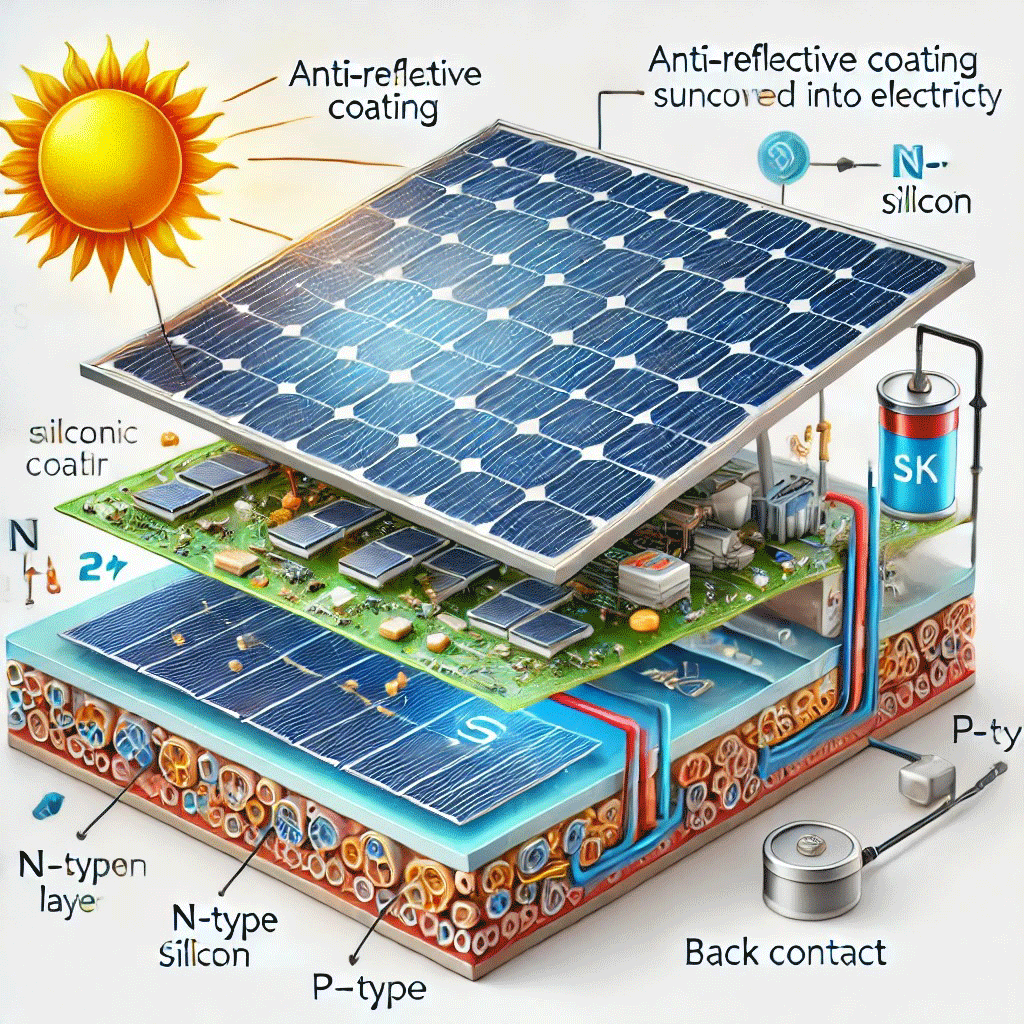Simply Solar Illinois – Your Trusted Choice in Solar Panel Setup
Simply Solar Illinois – Your Trusted Choice in Solar Panel Setup
Blog Article
How Solar Energy Can Help You Conserve Money and Decrease Your Carbon Footprint
The assimilation of solar energy into your power profile provides a compelling chance for both economic cost savings and environmental stewardship. By taking advantage of the sunlight's energy, property owners can considerably lower their monthly utility expenses while additionally safeguarding against the unpredictability of future energy expenses. The change to solar adds to a marked decrease in carbon emissions, lining up individual money with more comprehensive environmental goals. As various government incentives come to be offered, the concern occurs: how can one effectively browse the preliminary investments and ongoing advantages of solar innovation to optimize both economic and environmental gains?
Comprehending Solar Power Savings
While the transition to solar energy frequently includes a preliminary financial investment, recognizing solar power financial savings is critical for home owners and businesses alike. Solar power systems can significantly decrease electrical power bills by utilizing the sun's energy, translating into significant lasting economic benefits.
Furthermore, solar power systems may certify for numerous monetary rewards, including tax credit scores and rebates, further boosting their cost-effectiveness. The accessibility of web metering allows customers to market excess energy back to the grid, creating an added profits stream. These elements add to the total cost savings associated with solar power.

In enhancement to guide monetary financial savings, solar power offers the included benefit of enhancing residential property worth. Residences outfitted with photovoltaic panels are typically a lot more attractive to buyers, as they promise lower energy prices - Simply Solar Illinois. Comprehending these aspects is vital for any individual thinking about solar power, as it highlights not simply the possible monetary gains, but also the more comprehensive environmental and economic advantages of embracing renewable resource options
Initial Costs vs. Long-Term Benefits
When assessing solar energy, it is essential to consider the preliminary costs versus the long-term benefits. The in advance financial investment for photovoltaic panels, installment, and related devices can be substantial, often varying from $15,000 to $30,000, depending on the system size and home power requirements. This initial expense might prevent some house owners; however, it is crucial to take into consideration the prospective savings gradually.
When mounted, solar energy systems can considerably decrease or perhaps remove month-to-month power bills, resulting in considerable long-lasting financial benefits. Studies suggest that homeowners can conserve anywhere from $10,000 to $30,000 over the life-span of their planetary system, commonly 25 years. In addition, several states use rewards, tax obligation credit histories, and discounts that can counter initial prices, making solar extra easily accessible.

Minimizing Your Carbon Footprint
Lowering your carbon footprint is a crucial factor to consider in today's environmentally conscious culture, and adopting solar energy is one of the most reliable strategies to achieve this objective. Solar energy is a clean, renewable energy that substantially diminishes dependence on nonrenewable click over here fuel sources, which are significant contributors to greenhouse gas discharges.

Additionally, the prevalent fostering of solar innovation encourages the development of eco-friendly work and sustains technologies in energy storage space and efficiency. The more individuals and organizations buy solar energy, the higher the cumulative reduction in carbon discharges, promoting a cleaner ambience for future generations.
Government Incentives and Discounts
Embracing solar energy not just profits the environment however can also cause substantial financial savings, specifically with the accessibility of federal government rewards and rebates. Different government, state, and regional programs are designed to urge home owners and businesses to spend in solar energy systems, making the transition more cost effective.
Among the most famous incentives is the Federal Financial Investment Tax Credit Report (ITC), which permits planetary system owners to deduct a significant percentage of the setup costs from their federal taxes. This motivation has actually been critical in reducing the upfront webpage expenditures connected with solar energy systems. Furthermore, several states provide their very own tax obligation credit reports, gives, and discounts that can better boost financial savings.
Furthermore, some city governments provide real estate tax exemptions for solar installations, ensuring that home owners do not encounter raised real estate tax as an outcome of their renewable resource investments. Utility companies might additionally use rewards, including web metering and feed-in tolls, which enable solar energy customers to offer excess power back to the grid.
Selecting the Right Solar System
Picking the appropriate solar system is crucial for taking full advantage of energy performance and monetary benefits. The decision pivots on a number of elements, consisting of energy needs, spending plan, and readily available room. House owners should start by evaluating their electricity intake to determine the system size needed for ideal efficiency.
Next, consider the various types of solar innovations readily available. Simply Solar Illinois. Solar (PV) panels are one of the most typical, transforming sunlight straight right into power, while solar thermal systems focus on heating water. Each kind has distinct advantages depending upon individual demands
Budget plan factors to consider are also vital. Preliminary installation prices can vary substantially, so it is very important to contrast quotes from several providers and check out funding options. Government motivations and rebates can further minimize the economic burden, making solar systems extra accessible.
Final Thought
The ecological benefits of solar energy contribute to lasting techniques crucial for combating climate change. Government incentives enhance the usefulness of solar modern technology fostering, motivating a transition in the direction of a cleaner, extra financially effective energy resource.
Report this page